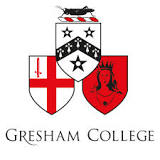Category: Art and literature
BROADSIDE BALLADS OF 17TH CENTURY ENGLAND
Lucie Skeaping, Broadcaster, Performer and Director of The City Waites
An exploration of the social context of the ballads, their appearance, language, selling methods and the origins of the tunes to which they were sung. The lecture will combine history, projected images and musical examples (performed to lute and cittern).
Canaletto: Grand Designs
In 1746 the great Venetian artist, Canaletto, moved to London following the market and wealth for his work. Nine years later, he left the city attacked by the critics as repetitive and a fake.
What was 18th Century London like to be the centre of such hope and disappointment? How did Canaletto feel about the city, and how are we to assess these views today?
The Passion in Art
There are no surviving depictions of Jesus on the cross in the catacombs, but by the middle ages it had become the definitive and defining image of Christianity. Yet there have been, and continue to be, major shifts in what this image has been trying to convey.
The Resurrection in Art
This is the most difficult of all Christian themes to convey in visible form and the early church approached it with proper reticence. Whilst the Western Church developed an over-literalistic image, the Orthodox Church gave it a powerful symbolic rendering. The 20th century, with its massive suffering, found this hopeful theme particularly problematic.
Foreign Artists working in London 1500-1520
The 16th Century was a great period for foreign artists in London. The capital saw such great artists as the German, Hans Holbein, and Netherlandish artists such as Hans Eworth and William Scrouts.
Tarnya Cooper, the 16th Century Curator at the National Portrait Gallery, will discuss the artists working in London at that time, the reasons for their coming to London and the welcome they received.
GOETHE THE MUSICIAN AND HIS INFLUENCE ON GERMAN SONG
Germany's greatest poet, Johann Wolfgang von Goethe (1749-1832), seemed to have perfectly attuned artistic sensibilities, and yet it was him who utterly failed to recognise the brilliance of the songs Franz Schubert made from his poems.
Professor Richard Stokes, of the Royal Academy of Music, investigates this seeming paradox through a review of Goethe's life and an analyses of his poems and their adaptation into Lieder by Schubert.
THE LAST MUGHAL
Bahadur Shah Zafar II, the last Mughal Emperor of India, was a mystic, an accomplished poet and a skilled calligrapher, but he will be mainly remembered for giving his blessing to the largest uprising of the 19th Century. The siege of Delhi in 1857 is perhaps the seminal event in the history of Empire, and it saw thousands die in fighting on both sides, and then the execution of ten of thousands of Indians once the British troops had regained the now ruined city.
Best-selling novellist, historian and travel writer William Dalrymple will fly from India to London to deliver a lecture as part of the College's contribution to the City of London Festival programme. William Dalrymple wrote and presented the award-winning TV documentaries Stones of the Raj and Indian Journeys, and his Radio 4 series on the history of British spirituality and mysticism, The Long Search, won the Sandford St Martin Prize for Religious Broadcasting, being described by the judges as "thrilling in its brilliance... near perfect radio."
